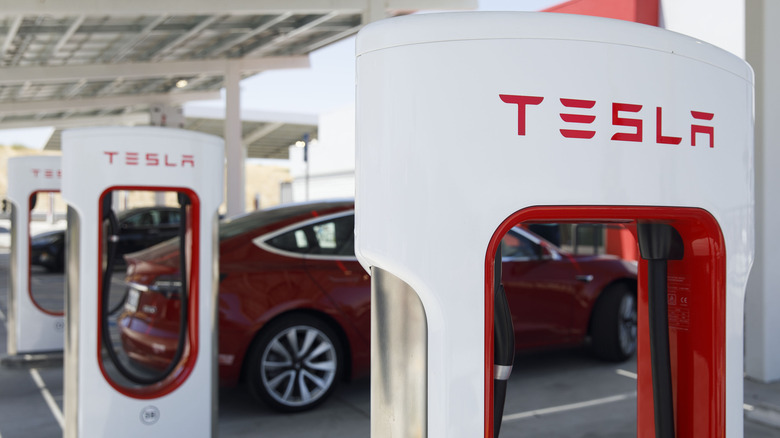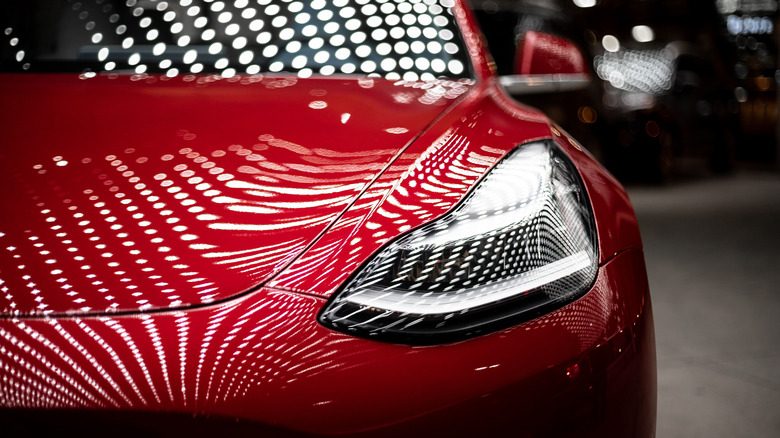Tesla Model 3 Buyers Won't Be Getting The EV Tax Credit They're Expecting
Many EV owners or those thinking about buying a new EV have been factoring the Inflation Reduction Act's federal tax credit directly into the cost of buying a new vehicle and whether or not it's financially worth it for them. Manufacturers like Tesla have even gone as far as providing list prices for products — like its recently unveiled Cybertruck — with the math already done for you, to further highlight the discount. However, starting in 2024, anyone looking to buy a Tesla Model 3 will need to double-check and be extra certain the trim they're purchasing is eligible for the full $7,500 discount because Tesla just confirmed that two models are having their credit reduced by half. Starting January 1, the Tesla Model 3 Rear-Wheel Drive and Model 3 Long Range trims will only be eligible for up to $3,750 in tax credits, as opposed to the full $7,500 they have been previously discounted by.
As part of a year-end sales push, the EV manufacturer is letting customers know that you can still take advantage of the full federal tax credit for both the Model 3 RWD and Model 3 Long Range if you buy them before 2023 comes to an end, however. On its Model 3 purchase page, Tesla states: "All new Model 3 vehicles currently qualify for a federal tax credit for eligible buyers. $7,500 tax credit will reduce to $3,750 for Model 3 Rear-Wheel Drive and Model 3 Long Range on Jan 1, 2024. Take delivery by Dec 31 for full tax credit."
Chinese-built battery components are the likely reason for the change
Tesla hasn't confirmed why its Model 3 RWD and Model 3 Long Range will no longer be eligible for the full federal tax credit in 2024, but it's likely to do with requirements mandated by the government. In addition to limits on a purchaser's adjusted gross income, price caps on the EVs, and whether a new electric car is being bought for personal use as opposed to resale, another limitation to the tax credit has to do with where the vehicle and its components are built. Specifically, if some crucial components are made in China, then an EV won't be eligible for the full credit.
Certain components in Tesla's batteries are made in China, which is possibly why some models will be disqualified for the full credit at the end of the year. This is a result of the Biden administration's continuous refining of the Inflation Reduction Act and EV tax credit, as well as its push to increase competition with China in the tech and industrial sectors. If the requirements are altered again at some point, or if Tesla moves its manufacturing stateside, there could be further changes to tax credit eligibility for certain Tesla models in the future.
In the meantime, if you're thinking of buying a Model 3 RWD or Model 3 Long Range, you can save thousands by doing so before December 31. To further incentivize year-end sales, Tesla is also offering six months of free supercharging to anyone taking delivery of the Model 3 or Model Y by the end of the year.

